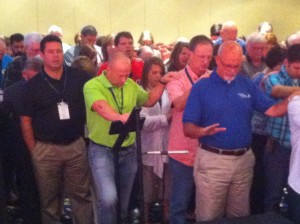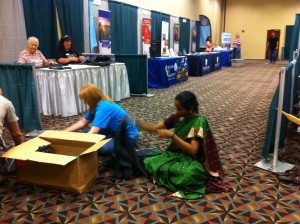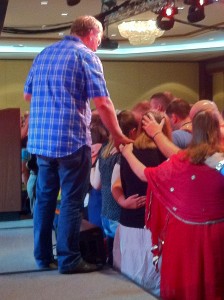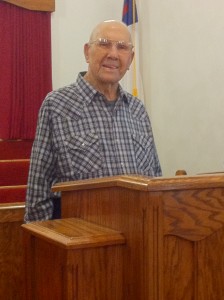By Franklin Dumond
The concept of family continues to change in our secular culture. Despite the rapidly changing dimensions of nuclear family, however, a genuine sense of family continues to characterize our Christian gatherings. Bill Gaither wrote a description a generation ago that continues to be descriptive of local churches and other gatherings of like-minded believers: “You will notice we say brother and sister around here, it’s because we are family and these folks are so dear.”
During our recent international General Baptist gathering, the Mission & Ministry Summit, the sense of family could be felt everywhere. I saw it in at least four variations.
1. There was the atmosphere of a family reunion during hallway chats, shared meals, and photos exchanged by folks who had not seen each other recently and were now able to get reacquainted. During our new afternoon break in the exhibit hall and our reception in honor of our missionaries, even more of this family reunion atmosphere was present.
2. There was the discovery of new friends and acquaintances that added to the family connection. With several hundred church leaders present it was obvious that not everyone knew everyone else, but it is always amazing to find that we have so much in common—once we get acquainted.
Since I travel throughout the denomination I am acquainted with several folks. It was my delight to introduce two of our pastors to one another late one evening. They were standing on either end of the lobby and as I walked by I realized “They are both originally from Canada and probably don’t know they form a Canadian caucus among General Baptists!” What a surprise to learn that they had both immigrated to the United States in the same year and had both become naturalized citizens in the South.
3. Family also shows itself in the shared tasks that require cooperation. As I looked around the exhibit hall before the Summit began I saw a group of folks organizing one of the T-shirt tables. Sitting on the floor, working at a table, or reaching into boxes I saw folks from several states sharing the load. Then, just next to Executive Director Clint Cook sat Jemima Prakash from India. She was just as busy folding and organizing T-shirts as everyone else was. Isn’t it incredible that our General Baptist family is international in scope?
around the exhibit hall before the Summit began I saw a group of folks organizing one of the T-shirt tables. Sitting on the floor, working at a table, or reaching into boxes I saw folks from several states sharing the load. Then, just next to Executive Director Clint Cook sat Jemima Prakash from India. She was just as busy folding and organizing T-shirts as everyone else was. Isn’t it incredible that our General Baptist family is international in scope?
The worship team that lead our main sessions showed that same sense of family cooperation. Musicians from four different churches each brought their gifts and talents and worked together to lead us in praise.
On Tuesday evening we joined as one large family to pray a blessing over our  missionaries and church planters. These folks assembled at the front while we all crowded around them. I looked out at the crowd and noticed that joining in our prayers for these missionaries was Dr. David Cummings. He was our guest speaker from Australia, but on Tuesday evening he became part of the family as we prayed for God’s blessings on our missionary spokesmen.
missionaries and church planters. These folks assembled at the front while we all crowded around them. I looked out at the crowd and noticed that joining in our prayers for these missionaries was Dr. David Cummings. He was our guest speaker from Australia, but on Tuesday evening he became part of the family as we prayed for God’s blessings on our missionary spokesmen.
I loved the way Moderator Elect Josh Carpenter summarized his experience in 1999. He attended the old General Association meetings that year for the first time. There, he admitted, he found a connection to the larger family of General Baptists.
Cousins of mine recently showed up at the family reunion. As one of them reported, “I baked my casserole and hurried to the meeting place.” She went on to say, “There sure seemed to be a different crowd this year and one of the ladies kept quizzing me about the family.” Finally she discovered she had the right place and had baked the proper casserole but had come one month early. She concluded her story with a quick laugh as she summarized the event by saying, “No wonder they asked so many questions!” Among General Baptists there is a common connection that binds us together—even if we arrive at the wrong time!
In an increasingly secular culture there will always be many dimensions to family, but among General Baptists there remains a deep sense of family. We remain connected by that core theology that Jesus Christ, by the grace of God, tasted death for every man. Aren’t you glad he has included you in the family?


